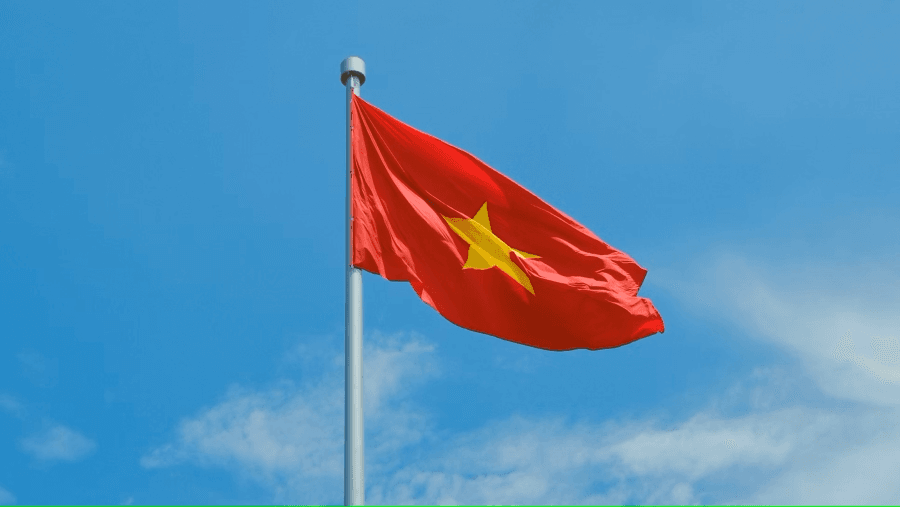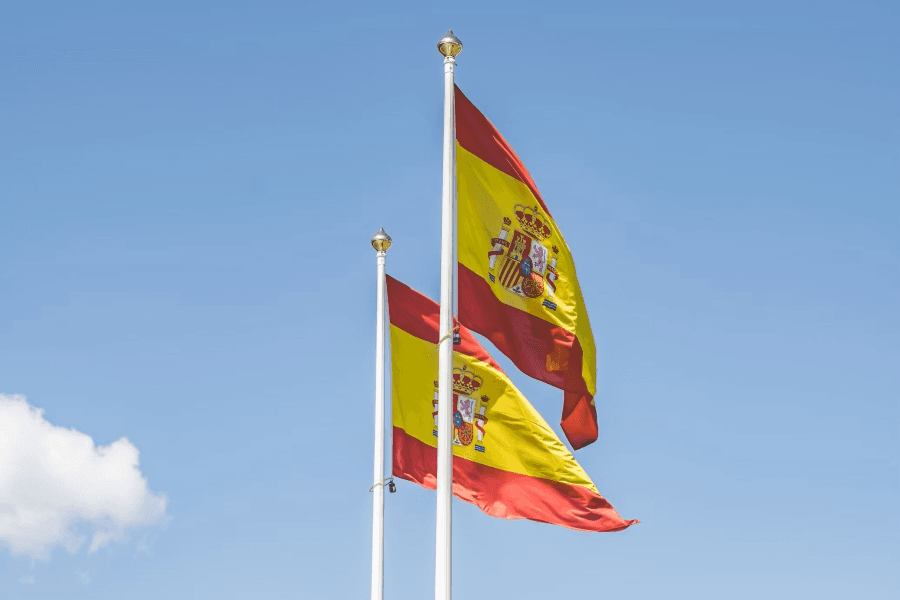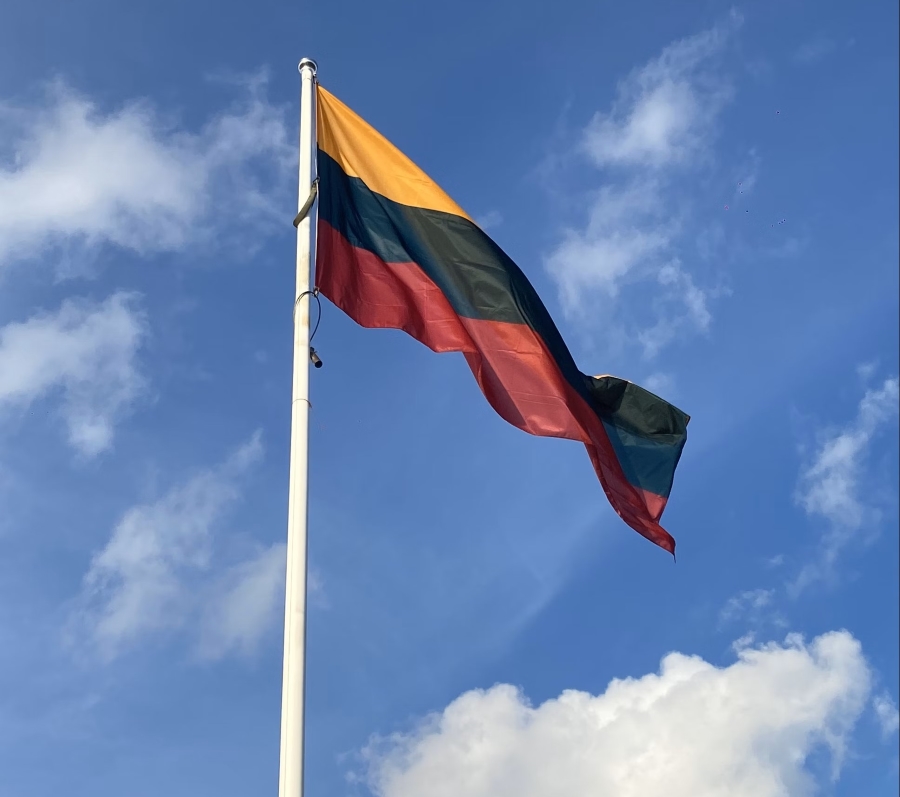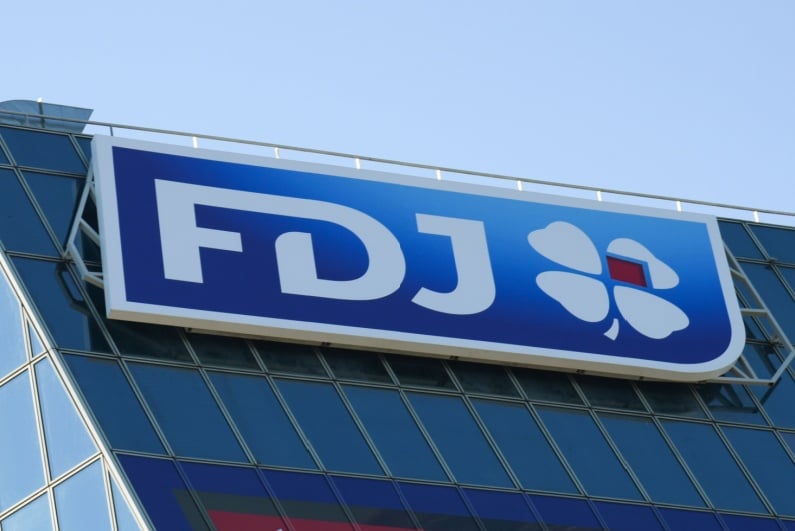


Limitless wagering infrastructure set to disrupt $95B Online Gambling Market
A new API enables instantaneous, borderless, low-fee, peer-to-peer wagering using the Bitcoin Lightning Network. Created in response to the pain points of traditional competitive gaming platforms – including high buy-ins, cashout thresholds, slow payouts, and regional restrictions – Clinch makes global, limitless wagering a reality.
Targeting the $95B online gambling market, the Clinch API allows partners, such as online casinos, sports books, and competitive gaming platforms, to integrate global, high-frequency wagering without the restrictions, high fees, and slow processing of traditional gaming providers. Clinch is a revolutionary monetization tool for game developers and other businesses navigating ever-changing app store and developer platform policies.
Current competitive gaming typically enforces high buy-ins, often requiring users to deposit $20 or more to begin gameplay. These thresholds are untenable for the majority of global users, especially in emerging markets and developing regions, unable or unwilling to deposit such high amounts of funds. Clinch’s wagering rails make it possible for users to enter wagers for as little as one satoshi (1/100,000,000th of a bitcoin). Clinch not only opens the door for users globally, it also allows businesses using the API to reach and monetize this global audience.
As of the announcement, users can test out Clinch in THNDR’s portfolio of games, beginning with the cult-classic, Club Bitcoin: Solitaire, which reached #21 in the App Store and is the highest ranked bitcoin game of all time. Users can place a wager (in bitcoin) on a game of Solitaire against friends, and funds will be paid out instantaneously, peer-to-peer.
Select partners are currently testing out early API access and users should expect limitless Clinch wagering in an endless supply of games. Expanding the Clinch suite of offerings outside of skills-based wagering, THNDR is working with sports-betting and gambling companies to make high-frequency wagering globally accessible and more efficient while elevating the integrity and overall quality of the gameplay.
Clinch allows users limitless wagering directly with peers, for exactly the desired amount – no upfront deposit required. Wagers can be placed for as little as one satoshi, or 1/100,000,000 of a bitcoin, and there is no upper limit on the wager size (although early Clinch versions will be capped as the tech is tested in production).
While similar wagering and betting innovations have been tested on other blockchain protocols, these are fraught with security vulnerabilities, negligent token issuance, centralization, and have garnered regulatory scrutiny. In light of the recent $41.3M hack of the online crypto casino and sports betting platform, Stake.com, Clinch offers a welcome alternative by giving users complete control of their funds. THNDR is the first company to launch a consumer wagering product and API on Bitcoin’s Lightning Network.
Users can now test out early access, wagering bitcoin in near real-time, PvP Solitaire matches. Initial rollout is invite-only but users can sign up for rolling waitlist access. Developers interested in integrating the Clinch API can visit api.clinch.gg for API documentation and access.
THNDR is a gaming infrastructure company focused on building products that enable competitive, connected play, frictionless rewards, and borderless wagering. THNDR’s newest product, Clinch, leverages the Bitcoin Lightning Network to enable instantaneous, depositless, peer-to-peer wagering.
Join us in Malta between the 13 – 17 November for SiGMA Europe 2023. SiGMA Europe’s Malta Week festival brings together a diverse and international group of industry leaders for a convergence of expo, conference, and networking. The event will be held at the Mediterranean Maritime Hub (MMH), a larger, more dynamic venue that promises a raw, industrial, and unconventional space unlike anything ever used before.
Find all the details here.
In a unanimous decision this week, the rejected a petition challenging the legality of a gambling compact that allows the Seminole Tribe to offer online sports betting throughout the state. This ruling marks another defeat for pari-mutuel companies West Flagler Associates and Bonita-Fort Myers Corp., which have been contesting the compact in both state and federal courts.
"Quo warranto is not and has never been the proper vehicle to obtain a declaration as to the substantive constitutionality of an enacted law. For that reason, we deny the petition because the relief that petitioners seek is beyond what the writ of quo warranto provides"
The controversy originated from a 2021 agreement signed by Florida Governor Ron DeSantis and Seminole Tribe Chairman Marcellus Osceola Jr. This 30-year deal, known as a compact, features a "hub-and-spoke" model enabling the tribe to handle mobile sports bets placed anywhere in . Additionally, the compact permits the Seminole Tribe to offer new casino games such as craps and roulette and to build three new casinos in Broward County. In return, the tribe has committed to paying the state a minimum of $2.5 billion over the first five years, with expectations of significantly higher revenue over the compact's duration.
The plaintiffs, including business owner Isadore Havenick, argued that the compact violated a 2018 constitutional amendment restricting casino gambling expansion. They sought a "writ of quo warranto," a legal action questioning the state's authority to enter into such agreements. However, the court's 11-page opinion, authored by Justice Meredith Sasso, (pictured above) cited precedent to deny the petition. Sasso referenced a 1920 ruling that quo warranto is intended to challenge the right to hold office or exercise state-derived privileges, not to question the constitutionality of enacted laws.
The ruling underscores the court's stance that quo warranto is limited to questioning the exercise of state power rather than assessing the merits of legislative actions. The justices suggested that the pari-mutuel companies could pursue a more conventional lawsuit in circuit court if they wish to challenge the compact's constitutionality.
The compact has already begun to reshape Florida's gambling landscape. In November, the Seminole Tribe started accepting mobile sports bets, and by December, they had introduced new table games and sportsbooks at their casinos. Jim Allen, CEO of Seminole Gaming and chairman of Hard Rock International, stated that the tribe expects to contribute at least $650 million to the state over the next year under this agreement.
Gary Bitner, a spokesman for the Seminole Tribe, celebrated the court's decision, calling it "a major victory for the people of the state of Florida." He emphasized the financial benefits, noting that the compact will provide substantial funding for state needs while offering Floridians and visitors enhanced gambling options.
The pari-mutuel companies' legal battle is far from over. In a federal case, a U.S. district judge initially ruled in favor of the companies in 2021, but an appellate court later upheld the U.S. Department of the Interior's approval of the compact. The companies have now sought a review from the U.S. Supreme Court, challenging the appellate court's decision. They argue that the federal Indian Gaming Regulatory Act (IGRA) does not permit the Department of the Interior to authorize gambling off tribal lands.
Their petition to the U.S. Supreme Court, filed in February, contends that the compact effectively bypasses state constitutional prohibitions against online sports betting conducted off tribal lands, creating a gambling monopoly for the Seminole Tribe. Attorney Hamish Hume from Boies Schiller Flexner LLP stressed the national implications, suggesting that the appellate court's decision, if left unchallenged, could set a precedent allowing other state-tribal compacts to circumvent state laws and IGRA's limitations.
West Flagler Associates and Bonita-Fort Myers Corp., which operate jai alai licenses and a poker room respectively, claim that statewide online sports betting could harm their businesses financially. Despite their ongoing legal efforts, representatives of the companies did not comment on this week's ruling.
This latest decision by the Florida Supreme Court solidifies the compact's standing but also signals potential future legal battles as the issue of state versus federal authority in gambling regulation continues to unfold.
Lea Hogg28 minutes agoThai province near Malaysia border eyes casino development to boost tourism
A proposal for southern Thai province of Songkhla, bordering Malaysia, to host a casino to stimulate tourism has been raised. This proposal has been proposed by Songchai Mungprasithichai, President of the Songkhla Tourism Promotion Association.
According to a report by The Bangkok Post, Mungprasithichai suggested that the area around Ban Dan Nok, ’s southernmost entry point, could attract gambling tourists. This location is often overlooked by Malaysian visitors in favour of Hat Yai, a more popular destination.
Mungprasithichai highlighted that tourism operators in Ban Dan Nok report a quiet market. Even Hat Yai, a traditionally busy tourist hub, experiences inconsistent tourist flows. During festivals, 90 percent of foreign tourists in Hat Yai are from Malaysia, but these visitors now have more travel options than in the past.
Mungprasithichai said he believes that the proximity of Songkhla to Malaysia's Resorts World Genting could make it an appealing alternative for gamblers who typically visit the Genting Highlands.
For the casino development to succeed, Mungprasithichai emphasises the necessity of local approval. He called for an awareness campaign to inform the community about the benefits of an integrated resort. He was quoted saying that despite being an Islamic country, Malaysia allows legal casinos in Genting and he pointed out that a similar approach could work in Songkhla if the economic benefits are clearly communicated. The development would include hotels, shopping, and other attractions, not just gambling, to ensure it appeals to a broad audience.
The call for a casino in Songkhla follows Malaysia’s Prime Minister's recent not to issue a second casino licence. This decision came after unverified reports suggested discussions about a potential casino near Singapore's border. Despite these denials, the interest in expanding casino operations in the region is evident. , with the potential establishment of its first integrated resorts, is becoming a focal point for the land-based casino industry.
Last month, the Thai government took a significant step towards the within integrated resorts, with the cabinet endorsing a report from a special House committee that recommends this course of action.
Macau welcomed approximately 2.6 million visitors last month, representing about 76 percent of the visitor numbers from the same month in 2019. Despite a monthly decline of 4.4 percent, there was a significant yearly increase of 14.4 percent, highlighting a recovery trend in tourism.
Based on the from the Statistics and Census Service, Macau faces challenges in extending visitor stays, with same-day visits reaching 1.35 million, a 23 percent increase from the previous year. In contrast, overnight visitors totalled 1.25 million, marking a modest yearly rise of 6.3 percent. The higher rate of same-day visits indicates a need for strategies to encourage longer stays.
Mainland China remains the largest source of visitors, contributing 1.73 million arrivals in April, a 25.3 percent increase from the previous year. However, the number of visitors traveling under the Individual Visit Scheme (IVS) saw a slight yearly decline of 3 percent, totalling 793,351.
Hong Kong visitor numbers decreased by 22 percent year-on-year, down to 581,646. In contrast, Taiwan saw a substantial increase in visitors, up 120.6 percent to 73,460. Compared to 2019, visitation from mainland China, Hong Kong, and Taiwan reached 74.2 percent, 83.5 percent, and 80 percent, respectively, indicating varying degrees of recovery across these regions.
's efforts to boost international tourism are yielding positive results, with international visitor numbers rising by 92 percent year-on-year to 208,297, or about 89 percent of April 2019 levels. South Korea contributed nearly 38,000 visitors, approximately 61 percent of pre-pandemic levels, while the Philippines accounted for 35,800 visitors, about 87 percent of the 2019 figures.
From January to April 2024, Macau recorded a total of 11.47 million visitors, achieving about 83 percent of the visitor numbers seen in the same period of 2019. This data reflects a strong recovery trajectory, although it also underscores the need for continuous efforts to fully restore tourism to pre-pandemic levels.
Macau's visitor statistics for April 2024 indicate a significant recovery in tourism, driven by increases in both same-day and overnight visits, particularly from mainland China and Taiwan. The substantial growth in international visitors highlights the success of 's efforts to attract tourists from diverse regions. However, the disparity between same-day and overnight visitors suggests that further initiatives are needed to encourage longer stays and enhance overall tourism revenue.
In a recent gathering of industry experts, the closing panel of "Market Expert Insights" discussed cross-border advertising bans in the gambling industry. The panel featured Robert Zammit, Partner at WH Partners; Quirino Mancini, President of the International Masters of Gaming Law (IMGL); Joerg Hofmann, Senior Partner at Melchers Law; and Cosmina Simion, Managing Partner at Simion & Partners.
Robert Zammit addressed the "headache" that marketing teams face when dealing with the diverse legal requirements of different jurisdictions. Quirino Mancini, President of IMGL, lambasted the country's “draconian” advertising ban on gambling operators as "pure legal nonsense." He criticised the Cinque Stelle (Five Star) Movement's hasty implementation of the ban, which was enforced by AGCOM, a telecoms watchdog with no prior experience in gambling regulation. "It was something that came out of the blue," Mancini said, emphasising the lack of research and stakeholder consultation.
Joerg Hofmann, Senior Partner at Melchers Law, pointed out the discrepancies between online and land-based gaming in the wake of these advertising restrictions and also highlighted the hypocrisy in the of these regulations, where operators regularly find loopholes to indirectly promote their brands. Cosmina Simion, Managing Partner at Simion & Partners, shared insights from Romania, where political elections and public opinion have led to increased taxes and restrictions on the gambling industry. "It's counterproductive to attack an industry which you are taxing more by putting more bans when you want their taxes at the end of the day," Simion argued, pointing out the broader impact on various industries, not just gambling.
The panellists agreed that the industry itself bore some responsibility for the current state of affairs. "The industry was the one that just got busy making money... and all of a sudden we realized that this was a bit too much," Mancini admitted. He called for increased dialogue between the industry and regulators to overcome mutual distrust and find balanced regulatory solutions.
A "lose-lose" situation
As the discussion concluded, the panelists underscored the need for evidence-based regulations and the importance of community messaging in advertising. "You can talk about the white market, the compliant market, the responsible market, as opposed to doing nothing," Simion urged, in efforts to avoid blanket advertising bans which are ultimately a “lose-lose” situation.
The panel highlighted the complex and often contradictory nature of cross-border gambling advertising regulations. It called for a more harmonized approach that balances the interests of operators, regulators, and the public while promoting responsible gambling practices. As the industry continues to navigate this challenging landscape, the insights from this panel serve as a beacon for future regulatory discussions.
The event was hosted by WHPartners and Payhound, with SBC as the strategic partner and sponsored by Sumsub.
Upcoming SiGMA event: happening in Manila from the 2 to 5 June.Shirley Pulis Xerxen20 hours ago













